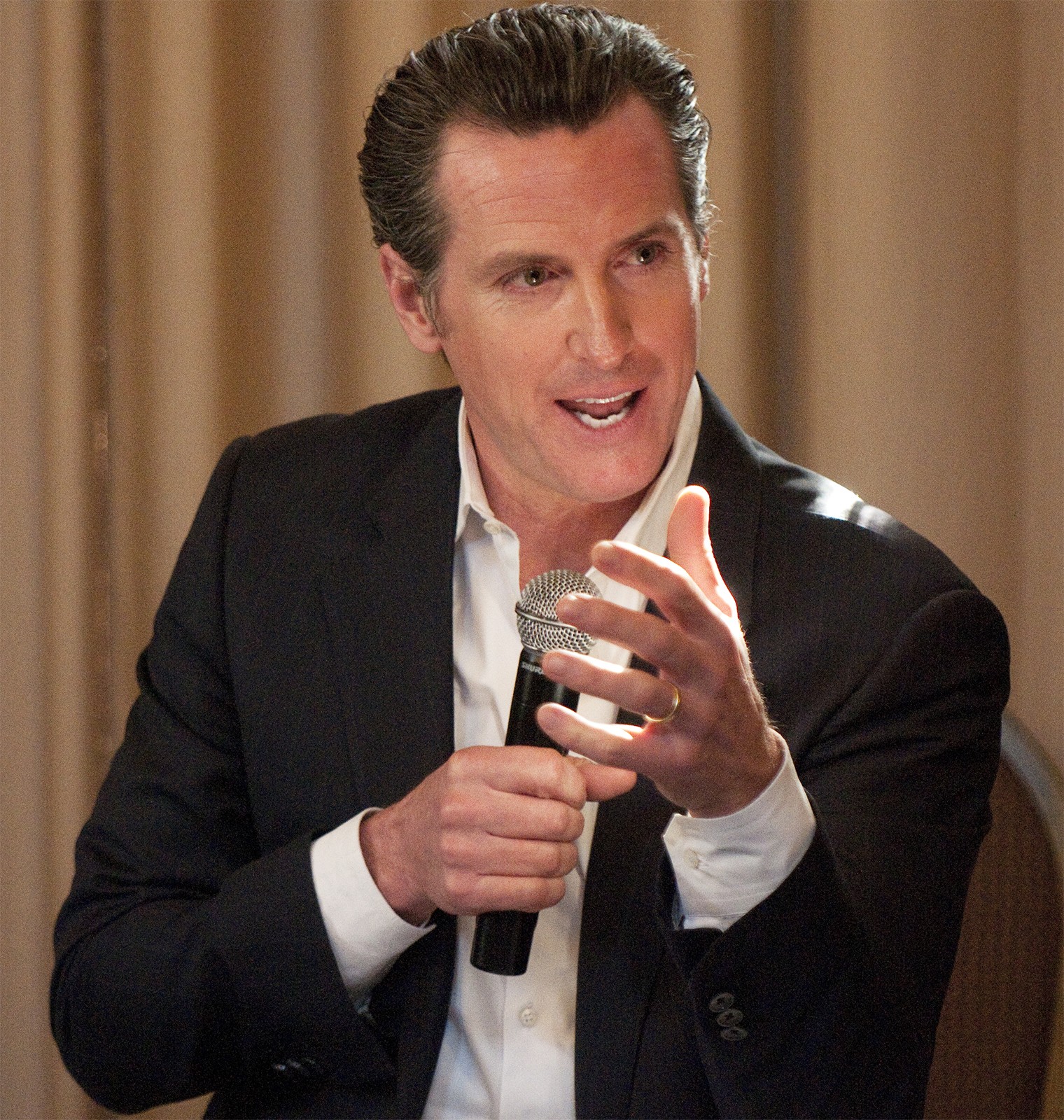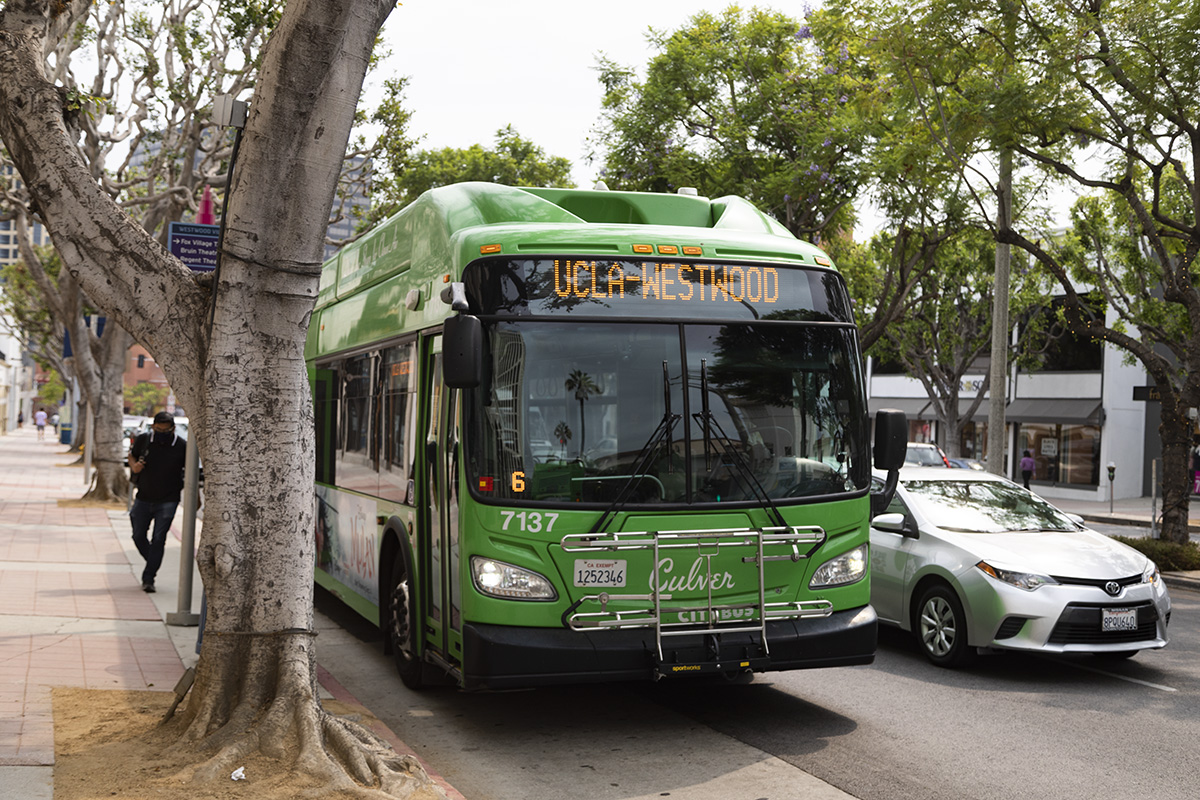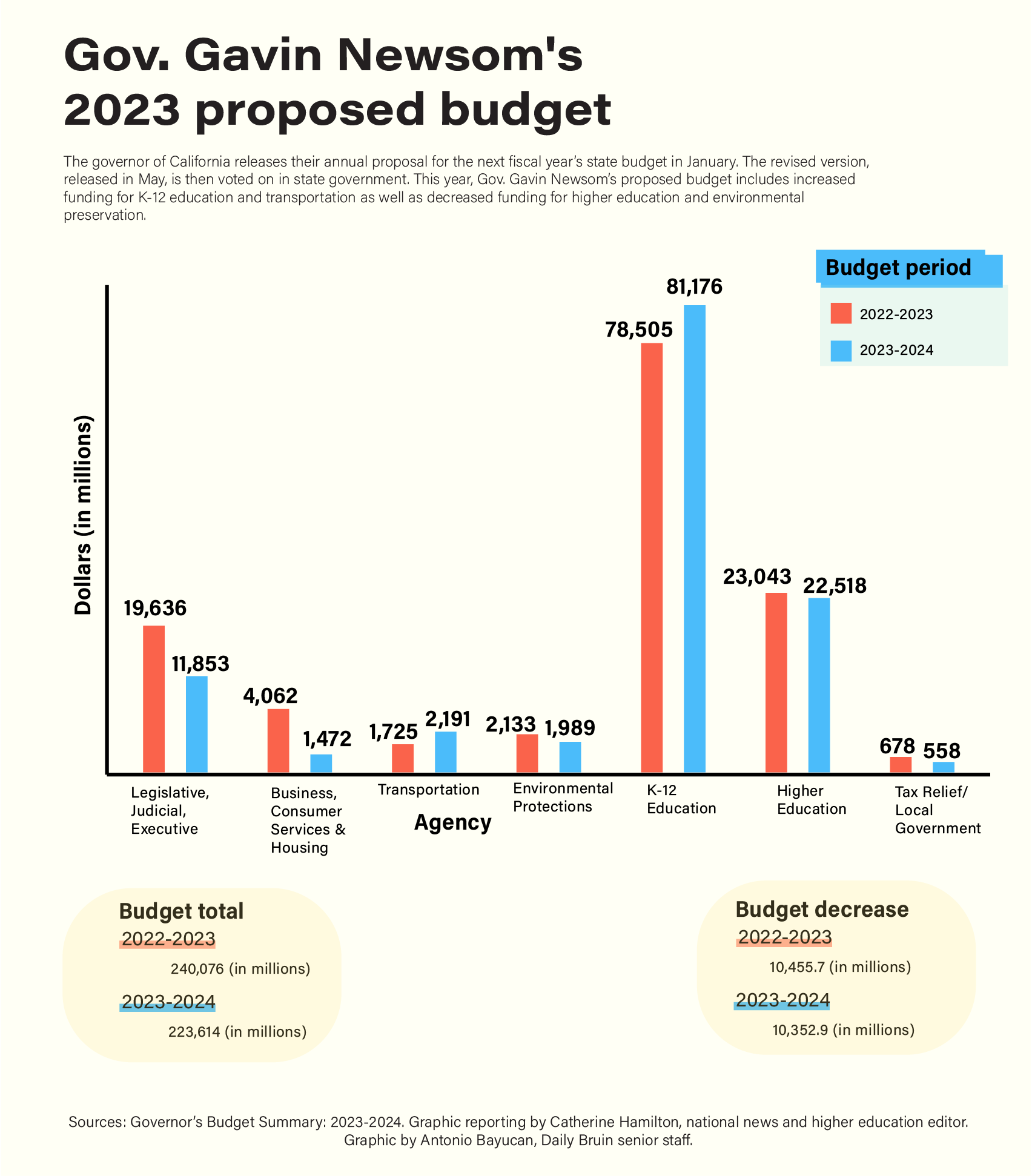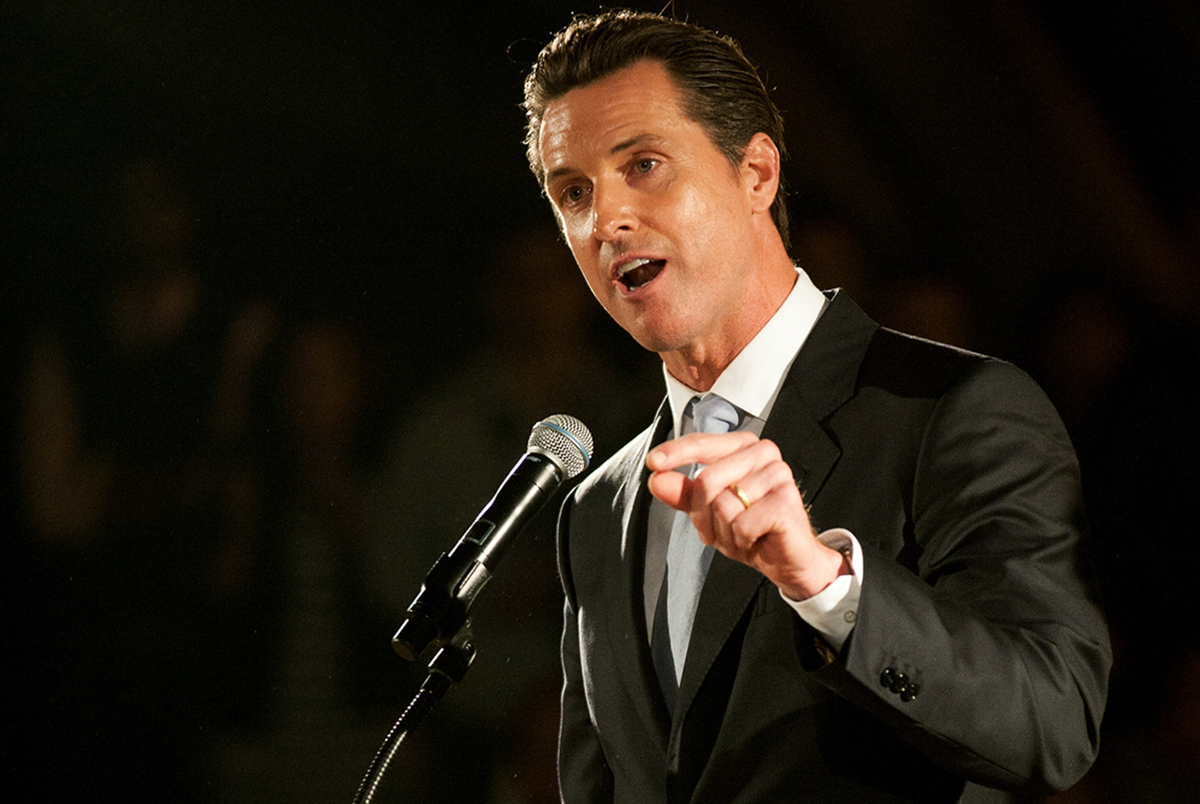Gov. Gavin Newsom vetoes bill that decriminalizes psychedelic substances

Pictured is Governor Gavin Newsom. Newsom vetoed a bill aimed to decriminalize the use of certain psychedelic substances. (Daily Bruin file photo)
By Dylan Tzung
Oct. 18, 2023 5:23 p.m.
This post was updated Oct. 25 at 12:20 p.m.
California Gov. Gavin Newsom vetoed a bill Oct. 7 that would have decriminalized the possession and use of some hallucinogenic substances.
Senate Bill 58, introduced by state Sen. Scott Wiener, would have eliminated criminal penalties for the personal use of controlled psychedelic drugs, including mescaline, psilocybin, psilocyn and dimethyltryptamine. The bill also would have decriminalized the therapeutic use of psychedelic substances by adopting governing guidelines put forth by a California Health and Human Services Agency workgroup.
In his veto message, Newsom expressed support for the potential benefits of psychedelic-assisted therapy but said implementation of regulated treatment guidelines is necessary prior to decriminalization. The governor’s recommendations of steps to take before decriminalizing the drugs included creating dosing specifications, standard therapeutic procedures, rules against exploitation during treatment and medical clearance practices for detecting underlying psychosis.
Dr. Charles Grob, professor of psychiatry, biobehavioral sciences and pediatrics at the UCLA David Geffen School of Medicine, said he understood the rationale of Newsom’s veto.
Grob, who is also the director of the Division of Child and Adolescent Psychiatry at Harbor–UCLA Medical Center, said he supports decriminalization, but only with more safety parameters and psychoeducation programs in place beforehand.
“I think psychedelics hold great promise,” Grob said. “But we need to go about this in a very careful, considered manner.”
Grob – who has been involved in psychedelic research for more than 30 years – said psychedelics hold potential medical benefits for individuals who have been unresponsive to other types of treatments. However, he added that there are risks associated with allowing the general population to access and use psychedelic substances.
Grob said it is important to have a comprehensive understanding of the health risks for people with underlying medical concerns before opening psychedelic treatment and use to everyone.
Alexander Zarris – a UCLA alumnus who was also the principal investigator for a study on the potential effects of psychedelic microdosing on the mental health of college students – said he opposes Newsom’s decision to veto the bill because harsh criminal penalties encourage the use of illegal purchasing avenues, thereby increasing the risk of consuming contaminated psychedelics.
Zarris added that he feels penalizing the use of psychedelics does not actually change the behavior of consumers – it simply increases the risks.
“People are already doing psychedelic drugs. They’re already taking them to improve their mental health or just for fun,” Zarris said. “You’re not significantly affecting the usage, you’re just affecting how safe it is for people to get the drugs that they want.”
Walter Dunn, a health sciences assistant clinical professor in the Department of Psychiatry, said that for the purpose of achieving long-term access to psychedelics, it is important not to push for premature decriminalization because adverse outcomes may lead to harsher restrictions.
Dunn said he also supports Newsom’s decision to veto and pointed to the need for caution in psychedelic usage. He added that medical professionals follow strict safety protocols when administering psychedelics for research, but that those parameters are unlikely to be followed in a recreational setting.
Zarris said he knew a considerable number of people who used psychedelic drugs during his time at UCLA, both responsibly and recklessly. He added that it is important for people to be thoughtful and careful in their consumption because psychedelics produce intense, mind-bending effects.
“Classical psychedelics are nonaddictive and nontoxic,” Zarris said. “In many ways, they are some of the safest drugs on the planet. But people also need to realize that this isn’t like alcohol.”
Newsom said in his veto message that he is willing to reconsider decriminalization legislation next year if more therapeutic guidelines are added. Grob said he also felt that more research was needed before pursuing decriminalization.
“Bottom line, we need more research,” Grob said. “We must have strong safety (parameters) or the field will implode.”






